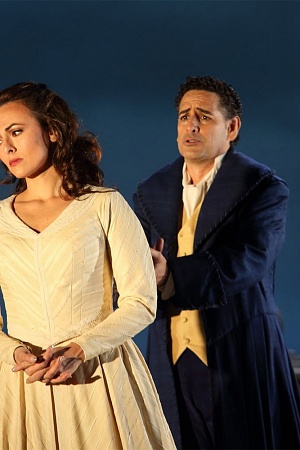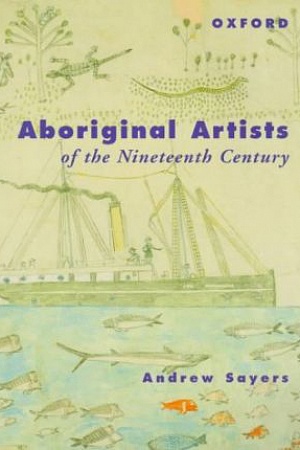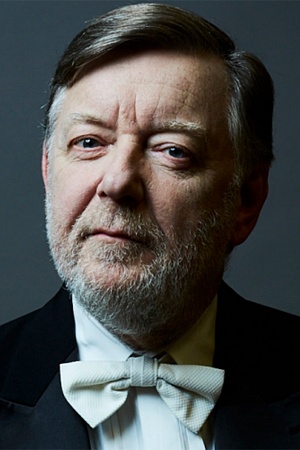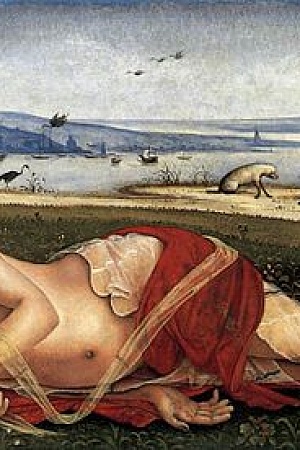Opera Australia’s Lyndon Terracini responds to Peter Tregear
Peter Tregear’s comments on Arts Update (‘Opera, the art of the possible’) regarding my recent Op. Ed. piece in The Australian are disappointing and require a response. Professor Tregear expresses strong opinions, but these opinions are not related to the facts.
Firstly, Opera Australia’s audiences have not declined, as Tregear claims. Quite the contrary. OA now has far more paying customers than at any time in its history. In 2013, OA took $51.7 million at the box office and gave 743 performances.
Secondly, Tregear quotes Peter Gelb and claims that the answer is not in ‘playing La Bohème to death’. This is extremely misleading and quite erroneous when taken out of context. The Metropolitan Opera in New York performs La Bohème every year and has done so for decades. Franco Zeffirelli’s production is a great one, and audiences love it. If The Met did not present La Bohème every year, its box office takings would be substantially lower.
Continue reading for only $10 per month. Subscribe and gain full access to Australian Book Review. Already a subscriber? Sign in. If you need assistance, feel free to contact us.











Comments (13)
142 main stage performances
133 musicals performances
20 Handa Opera on Sydney Harbour performances
11 Concerts
4 Free Events
419 Opera Australia Touring and Access performances
13 Co-production performances.
Total = 742 performances in one year.
I hope that clarifies OA's activities.
But I'm assuming you accept the difference between new to OA and new to opera as an artform? Both really valid - and as I stated previously - as great achievement - but very different.
"Handa Opera on Sydney Harbour (HOSH) played to 42,000 paying customers over three weeks in its first year alone and importantly 66% of that 42,000 had never ever purchased a ticket to an Opera Australia performance."
The subsequent HOSH events, which he cites, had slightly lower first-time audience percentages, which I attribute to the first-timers from 2012 becoming repeat attendees.
It may also be useful to be consistent with your own figures. OA's releases cite two different figures for Handa across two years (fine) - but neither of them are the 66% figure which you state above. Links here: https://opera.org.au/res/pdfs/media_releases/HOSH/130417_Carmen_triumphs_in_second_year.pdf and here https://opera.org.au/res/pdfs/media_releases/HOSH14/HOSH_Wrap_Up_release.pdf (thank you Twitter).
And yes, 'accurate reporting and research are essential components of a serious debate.'
People (including media and politicians) aren't stupid and notice inconsistencies. All of them are your audience.
Concerning factuality, Mr Terracini says that OA is presenting 743 performances this year. It advertised 384 of which 185 are popular music theatre. So there will be 200 mainstage opera performances. What accounts for the other 360 performances? Where do they fit in the budget and budget priorities?
Mr Terracini says that "We are all desperate to broaden the repertoire" but the only gesture in this direction is a commission to a composer known as a popular singer whose record as a composer, so far as I know, is limited to popular song-writing. Presumably, this will not be a main-stage work and will not be a work that uses soloists, orchestra, chorus... In short, it seems a pretty weak response to those feelings of desperation and is as unlikely to broaden the "grand" opera repertoire as the modernist works upon which Terracini built his reputation as a singer.
Implicit in Mr Terracini's article is that the requirement for a new work to be included in the OA mainstage season is that it should break even financially by attracting audiences to as many performances as are given of the less popular standard repertoire works - AND it should be able to be successfully re-presented at intervals of considerably less than ten years. With such requirements, Mr Terracini's desperation is unlikely to be relieved any time soon.
The regional opera companies in the USA are managing to present new operas with sufficient success to remain in business and I am told, with audiences as good as those for less popular standard works like Rigoletto.
Opera Australia's current all or nothing policy cannot lead anywhere. A rethink is needed: a longer-term strategy to find existing works that speak of our time, and to give Australian composers the opportunity to write and workshop operas with the prospect that the best will be presented by the company. These might initially not be mainstage works . It is a strategy that should be conceived as unfolding over the next couple of decades.
If the State Opera of South Australia can have such a strategy, it should not be beyond the national company.
With the vocal resources that OA currently has at its disposal, the entire show could (and should) be cast from singers currently living in Australia: Barker, Coleman-Wright, Moran, Dark, Breen, Fiebig, Gore, Arthur, Anderson et al. They can even import a Grimes with an Australian passport, should they choose.
No, this sort of selective use of what are being called "facts" is exactly the sort of things that. Mr Terracini claims is wrong with Prof Tregear's piece.
German houses, every the highly subsidized ones, don't do Grimes for a very specific reason. It's because the story and the music simply don't resonate with a non-English speaking audience in the same way that it does for us Anglophones. To use the fact that German opera houses don't do a particular work often as an excuse for not doing it here is simply ridiculous and non-sensical. The corollary is that if a German house does do something, then so should we, so we can expect lots of Der Freischütz, Lohengrin and Viva La Mamma and Evita then, all of which get frequent outings in major German houses? Of course not. Completely different audiences. So using the "they don't, so we shouldn't either is equally ridiculous in both directions.
Enough of treating us like people who are prepared to be spoon-fed whatever nonsense you'd like us to believe about your lack-lustre and boringly repetitive programming, Mr Terracini. If you continue to serve up the gruel, your regular diners will abandon you in droves and the "new" audience you seem so keen on will starve and won't be back for seconds.
Leave a comment
If you are an ABR subscriber, you will need to sign in to post a comment.
If you have forgotten your sign in details, or if you receive an error message when trying to submit your comment, please email your comment (and the name of the article to which it relates) to ABR Comments. We will review your comment and, subject to approval, we will post it under your name.
Please note that all comments must be approved by ABR and comply with our Terms & Conditions.